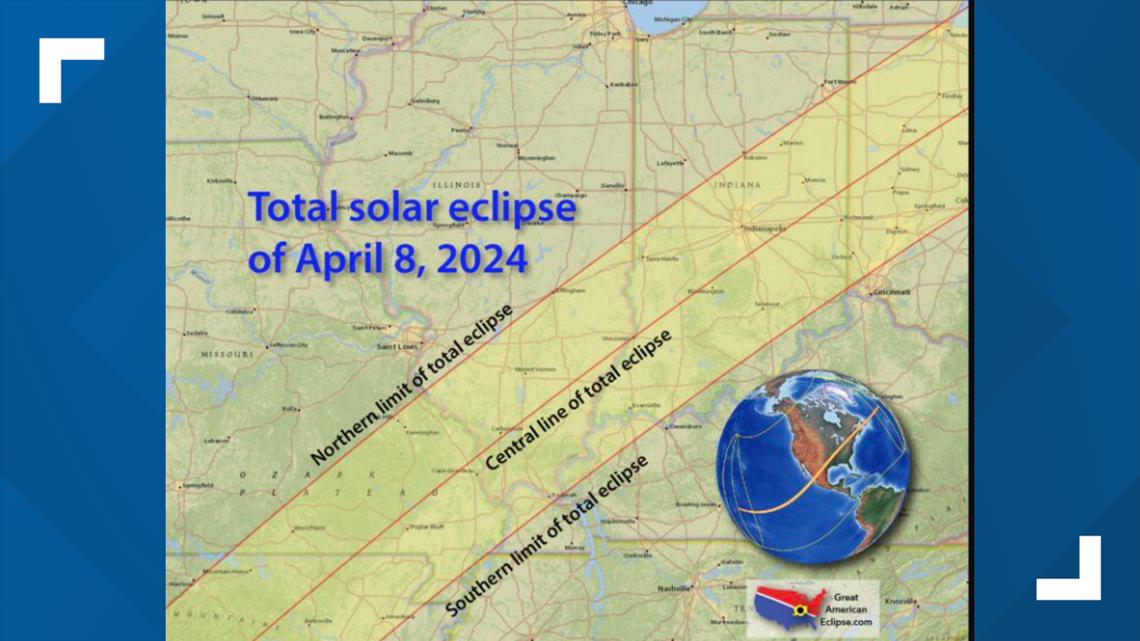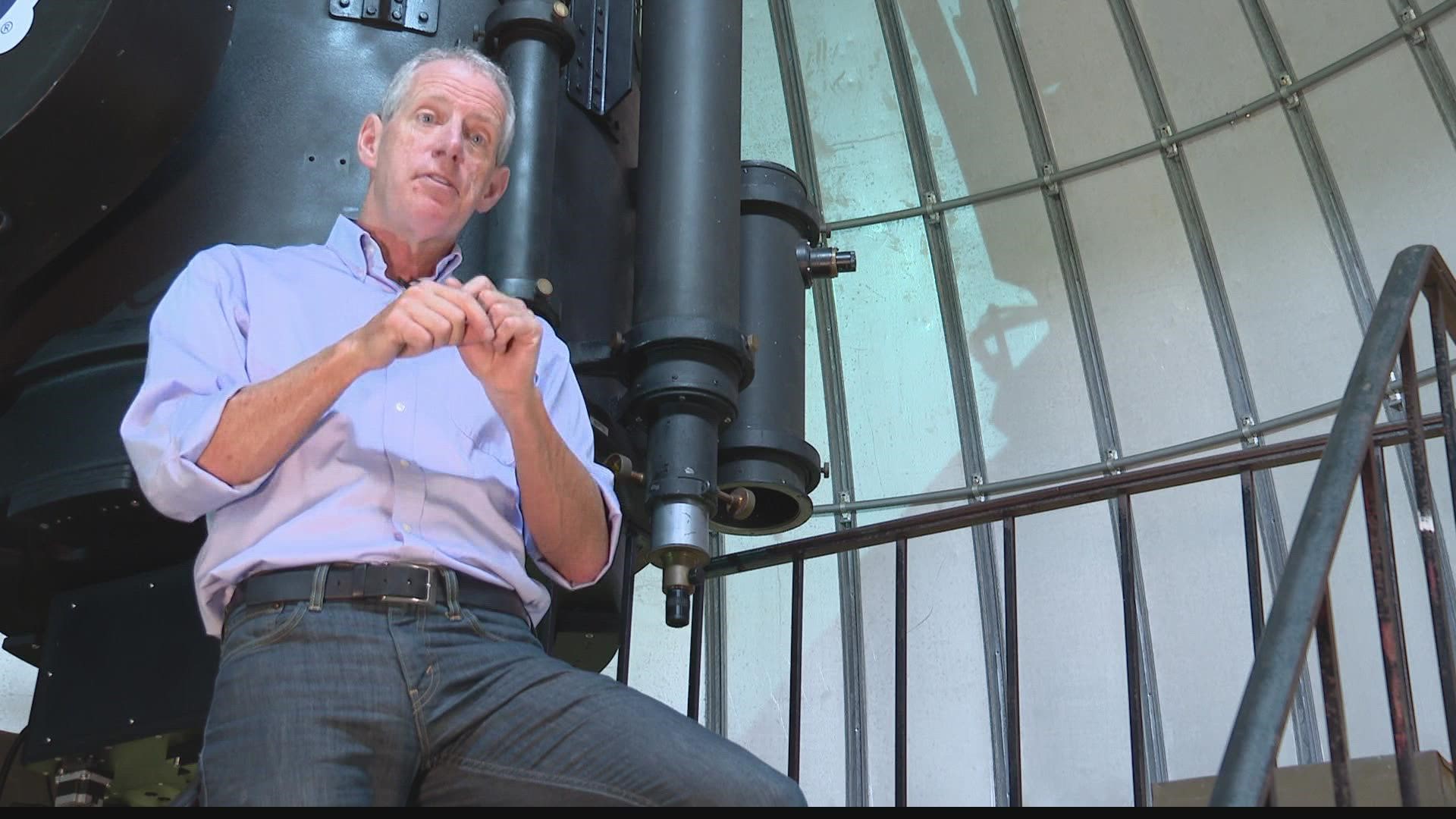INDIANAPOLIS — There is going to be an impressive show in the night sky Sunday.
"This is one of those events, you don't need a telescope. You can use your own two eyes, look up," said Brian Murphy, director of Holcomb Observatory and Planetarium at Butler University.
In just a few days, the moon will move fully into the Earth's shadow during a total lunar eclipse - and you can watch it happen from your home.
"It's one of those events where you can see the movement of the cosmos, that is the moon moving into the shadow of the Earth. You can even see that the shadow is curved, proving the Earth is a sphere," Murphy said.
Lunar eclipses have been significant for thousands of years, according to Murphy, studying them allowed the ancient Greeks to determine the Earth and moon's size. When this lunar eclipse happens, the moon will enter the darkest part of the Earth's shadow until it hits totality. When that happens, the moon becomes 10,000 times dimmer, turning a coppery red.
"The reason it appears this sort of coppery red color is because on the moon, you're actually seeing the nighttime side of the Earth. And around the rim of the Earth, you're seeing all the sunrises and sunsets, if you were standing on the moon, so the moon is illuminated by all those sunrises and sunsets on the Earth, hence its reddish, coppery red color," Murphy said.
Sunday's lunar eclipse will have many Hoosiers looking up at the sky. It's the first of a number of eclipses that will pass over Indiana over the next few years, leading up to the total solar eclipse in April 2024. That major event is something the folks over at the Holcomb Observatory are already preparing for.
"With the big one, Indianapolis's first total solar eclipse in 819 years," Murphy said.
With the total solar eclipse in 2024, the sun will disappear for those in the path of totality, illuminating the sun's corona and Indianapolis is poised for a perfect view.


Over the next two years, Holcomb Observatory will be hosting events and shows to get Hoosiers ready for this awe-inspiring event.
"Particularly the six months before, that's when it's going to be nothing but eclipse coverage all the time here at the observatory, to prep people for, to know what to do, to know what to look for during the total solar eclipse," Murphy said.
But with two years to wait, Murphy said this weekend's lunar eclipse will give astronomy fans a chance to get outside and excited about what's happening in the sky.
"But they are awe-inspiring and seeing that deep red color of the moon is quite a sight," Murphy said.
Want to get a jump start on learning about the 2024 solar eclipse? Over the weekend, the Holcomb Observatory and Planetarium will be hosting a preview of their show 'Eclipse, The Sun Revealed,' to help break down more on eclipses.
There's more information about Holcomb Observatory and Planetarium on Facebook, and you can follow their Twitter page, as well.
What other people are reading:

